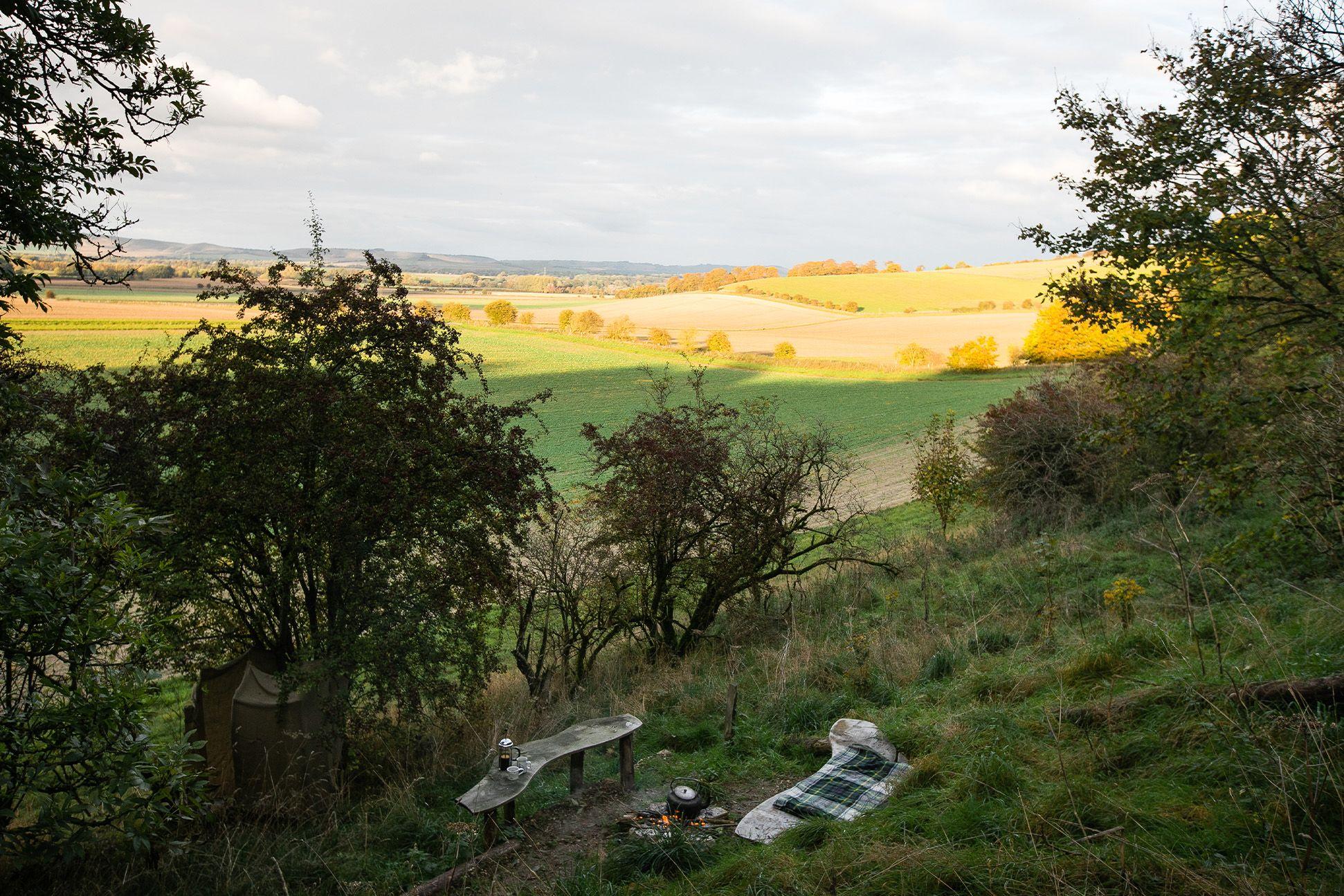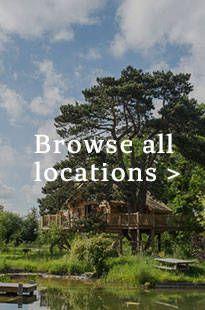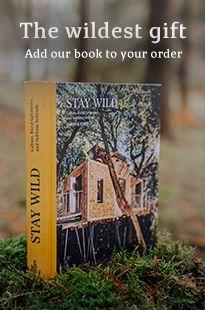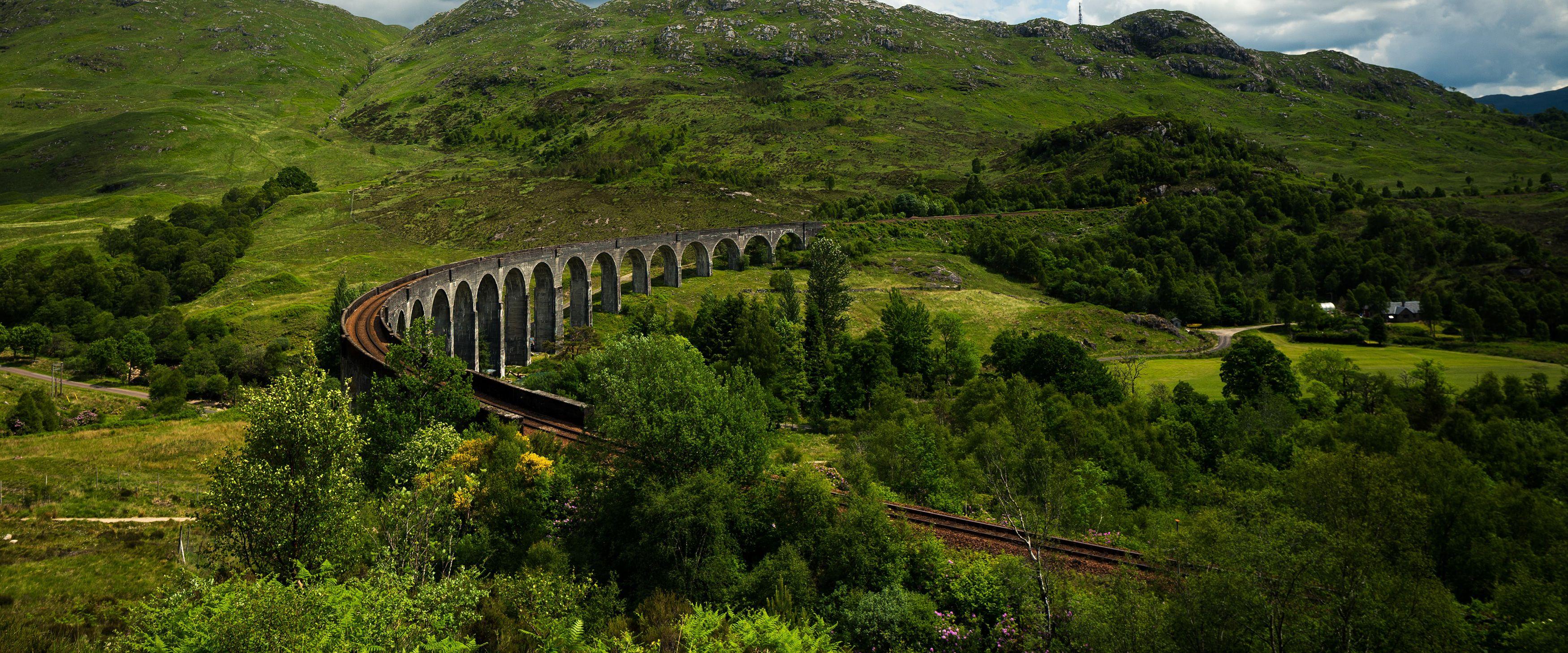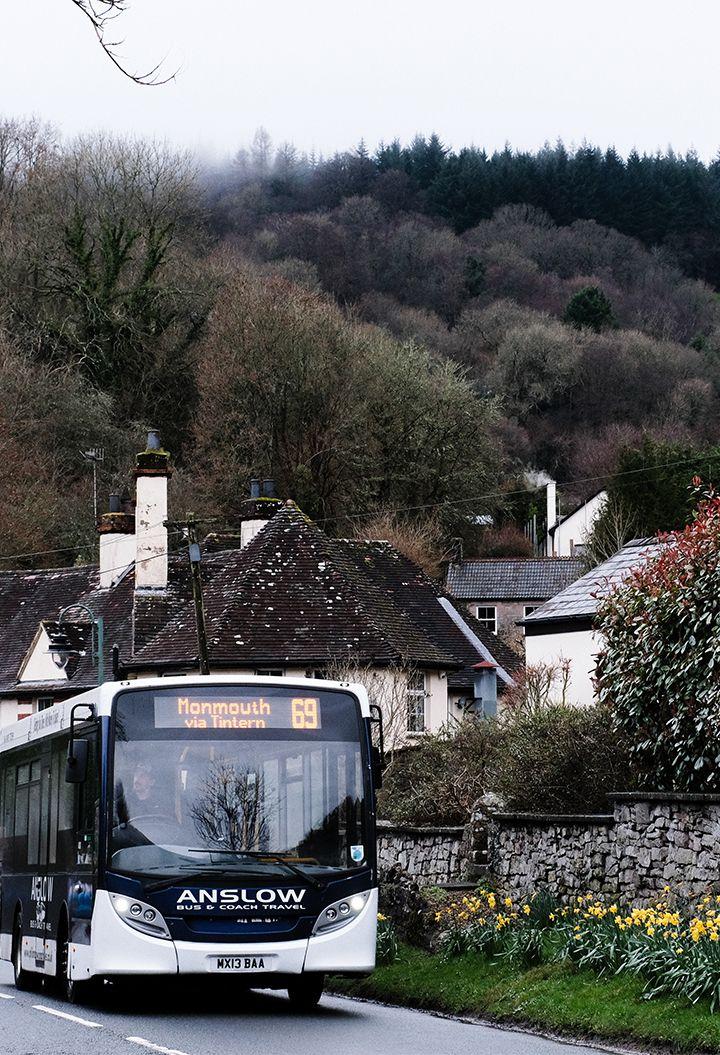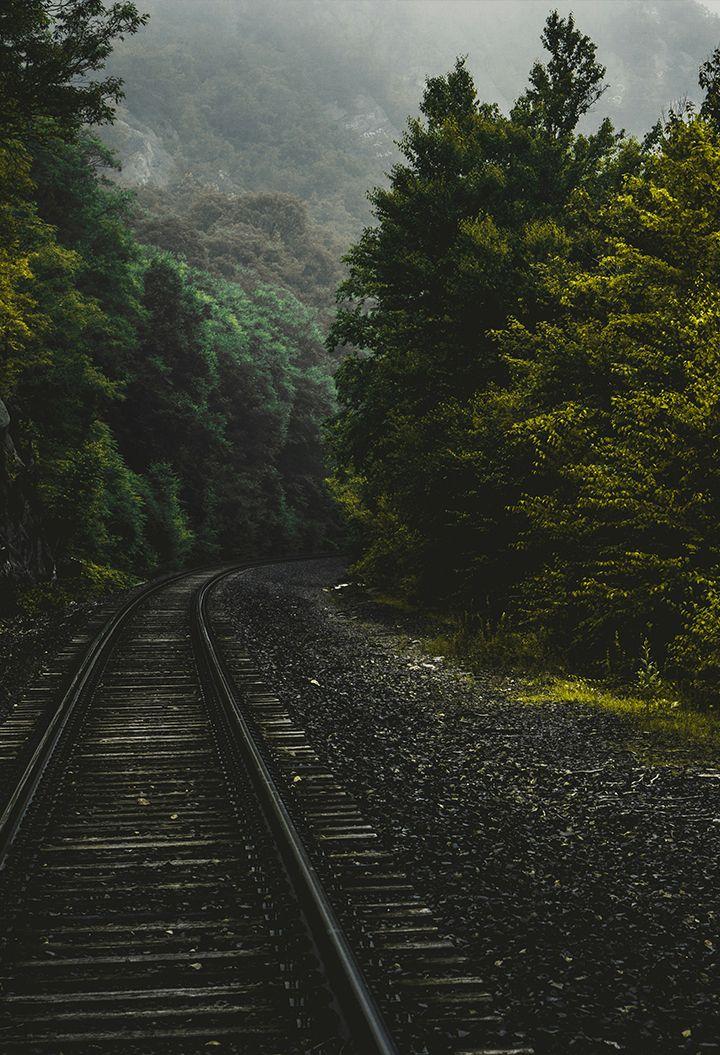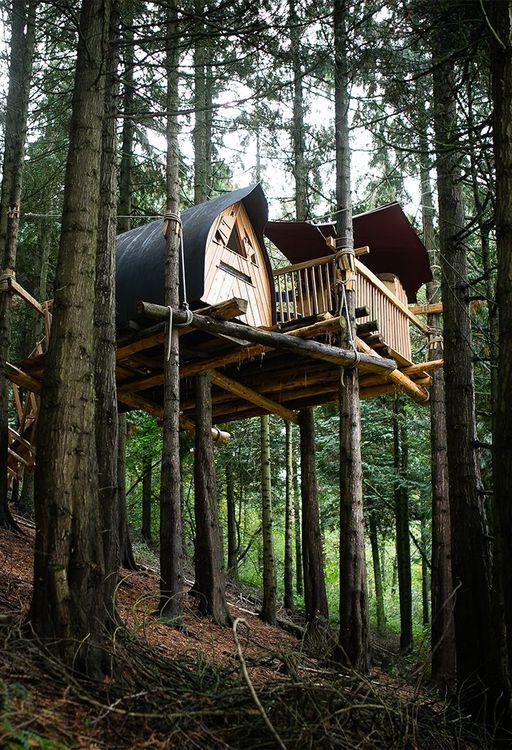
Meet the couple who travelled 500 miles on public transport to stay at a treehouse
Sometimes, it gets a little boring hearing from us. We get it. How long can you really take our word for it? So instead, this time, let’s hear from our guests. We spoke to two guests, Teresa and David, about their experience travelling to not just any treehouse, but Puckshipton Treehouse, where creator James encourages guests to visit via public transport if they can. The question is, what’s it actually like to stay there?
So Teresa, first of all – why Puckshipton? Especially given the travel requirements?
We had never stayed in a treehouse, and it was one of those ‘must try that!’ situations. Once ‘treehouse’ was decided, I admit that price was our next criterion. We had no desire for hot tubs and mod cons, so Puckshipton soon came to the fore. And the website warnings of isolation and lack of vehicular access was more intriguing than off-putting. I discovered that there was public transport within a few miles of the site, so the decision was made.
Have you travelled much worldwide? Have you had practise getting to equally difficult places?
In my younger days, before my marriage (I’m 57 now) I used to do long-distance hiking or cycling and camping, usually in rugged places like the Pyrenees, Alps and Outer Hebrides. As a non-driver, cars were never part of the equation. My husband David has little camping experience, other than a couple of music festivals, and the practical realities of Puckshipton were more of a novelty for him than for me. Having said that, he rose to the challenge, and thoroughly enjoyed himself.
How did you do the travel? What route or vehicles did you need to take?
We live in a tiny Norfolk village with no public transport, so the first six miles of our journey were made by car. Leaving the car in our local market town, we took a bus to Norwich, then the National Express coach to London Victoria.
At Victoria we caught the coach to Swindon, and from Swindon a local service to Upavon – this took all day. We arrived in Upavon around 6pm and stood in the main street with a map, trying to get our bearings.
Seeing us from their garden, a local couple offered to give us a lift up onto Salisbury Plain, which we accepted! This was the first of many kindnesses we encountered on our trip. Dropping us off at the top of the hill left us with only a half-mile walk down a steep footpath to the treehouse.
What was the journey like, how did it change the experience of the stay itself?
The journey to Upavon was fine, if long! We just had to be organised to make the various connections. A major benefit of not driving is that you can relax and watch the world go by – 40 red kites by the time we got to Wiltshire!
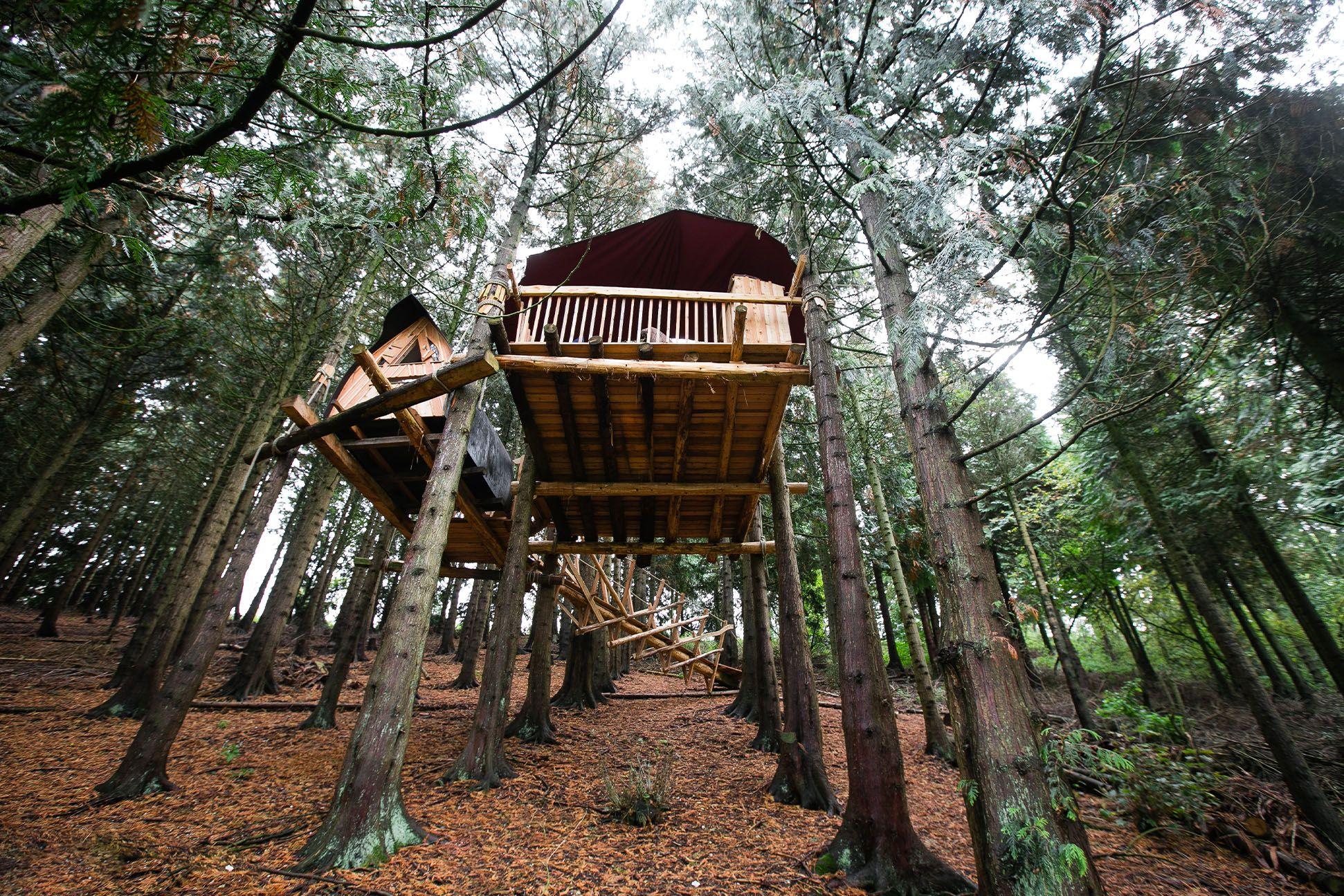
What did you enjoy the most about it?
Once we got on the bus at Swindon, we were travelling with the locals going about their everyday business – home from school or back from shopping, and that immerses you at once in the life of the area. Cars can be sealed bubbles with nothing but your own world inside them.
What did you enjoy the most about your stay at the treehouse?
We loved everything about Puckshipton, from the cunning construction of the treehouse itself, to the routine we quickly established around cooking and fire-building. The camp was well thought-out and functioned efficiently. The surrounding woodland was free for us to access and was as important to the whole experience as the treehouse itself. For a week, we became a little part of the life of the woods.
What was the most surprising element of it all?
The hidden nature of the treehouse was a real surprise, and a delight – you can’t see it until you are virtually at its foot. I think a primal childhood desire for building secret dens has been perfectly exploited in this case. A public footpath runs not so far away but even local people had no idea there was a treehouse in the area.
What were some of the difficulties you encountered? And how did you have to adapt?
Having no access to a car changes the whole complexion of a holiday. Perched halfway up a slope with the expanse of Salisbury Plain (and several regiments of the British army!) above us and the nearest town some miles away, any designs we may have had to explore the wider area during our stay quickly proved impractical.
Instead, we concentrated on getting to know the countryside within walking distance of the treehouse, tracing the perimeter of the Plain, then heading down into the small villages below the escarpment. Even given these restrictions we visited the most extensive (and least visible!) henge monument in Britain, met the good folk and the amazing birds of the great bustard reintroduction project and broached the MOD’s defences to access the Plain on a no-firing day.
Re-stocking with food supplies was probably our biggest challenge. Even with careful planning you can’t bring everything with you. There was rice and emergency tins of beans provided at the treehouse, but sooner or later you are going to want eggs, bread, milk and orange juice and the nearest shop is an eight-mile round trip on foot. We tried to always factor shopping into our daily expeditions. Sometimes this meant using little community shops or buying milk from a café.
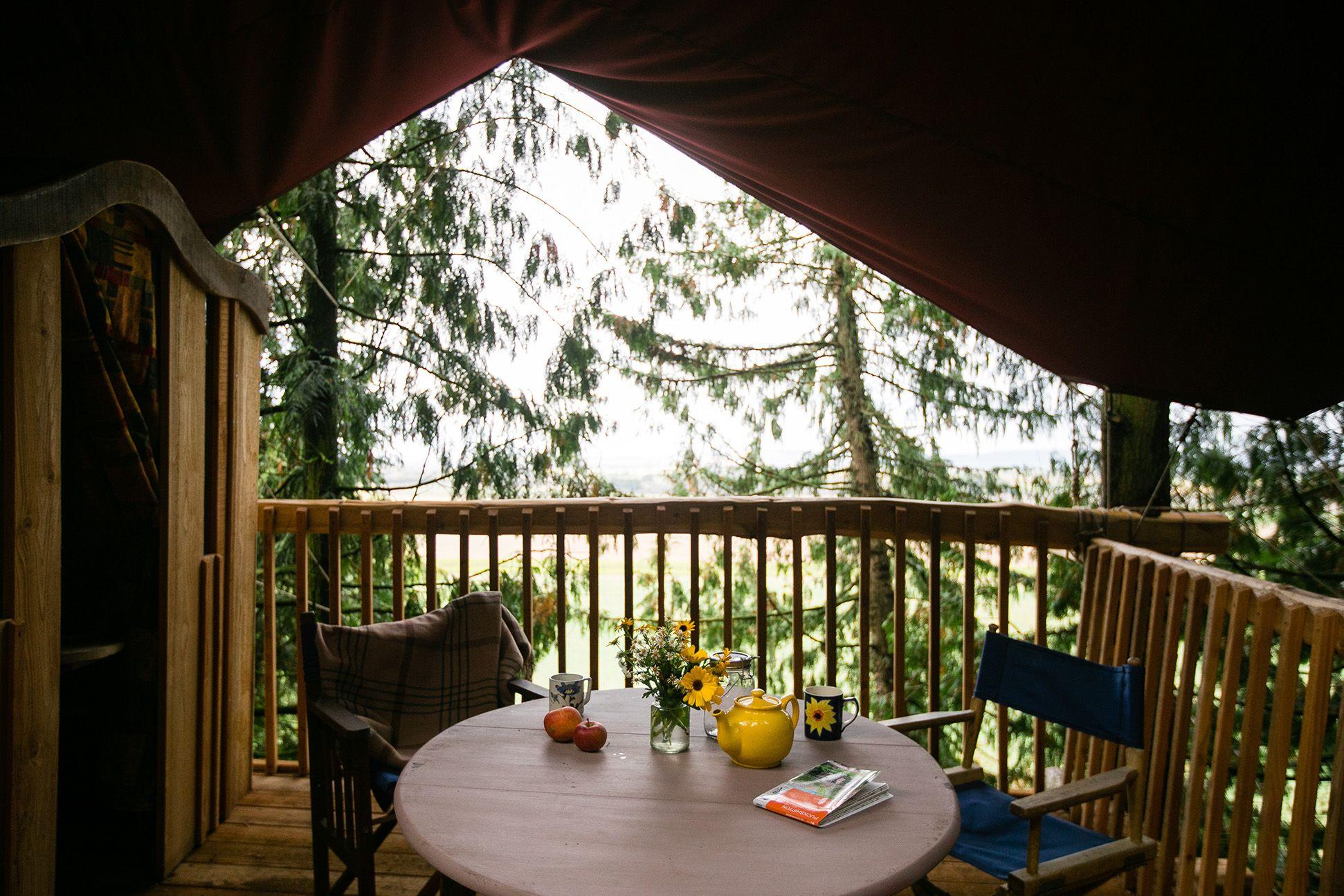
What tips would you have for others using public transport?
My main tip for public transport users would be to plan carefully. Allow plenty of time between connections. Do some research and choose your accommodation with walking distances and bus/train stops in mind. Treat your journey, (and your research), as part of your holiday, not just an inconvenient necessity.
Be realistic about how much ‘sight-seeing’ away from your immediate area you are going to be able to achieve, and be equally realistic about how far you can walk and how much you can carry. I possibly forgot that I’m no longer 20… and that my husband has never been the most dedicated hiker!
Is there anything about how tricky it can be, that in a weird way you liked or that felt like an adventure?
For me, a holiday is less about relaxation than about removing myself from everyday routines and familiar surroundings and seeing what occurs. Anything that does this is an adventure as far as I’m concerned. I like the way negotiating tricky logistics can bring you back to basics –navigation, food and shelter. You feel a sense of achievement when you get these simple things sorted out and are sitting by the fire with a mug of coffee and a view of Pewsey Vale fading into the twilight.
The closer you get to the natural world, the less curated things are going to be. You don’t need an exotic location, or an environmentally costly flight, to have chance encounters with amazing wildlife, or to meet interesting people for that matter. For all my earlier talk of careful planning, there comes a point when laying yourself open to the unexpected is what life is all about.
If you were to go again, what would you do differently, and what would you do the same?
Back to the prosaic and practical, if I were to visit Puckshipton treehouse again I’m not sure there would be anything much I would, or could, do differently. A stay in the summer months would have given us more daylight – our late arrival would have been in darkness if we hadn’t been given that lift from Upavon.
Warmer evenings would have allowed us to sit up in the treehouse, as the cold north wind during our springtime visit pretty much tied us to the fire pit. But then we would’ve missed the may blossom and all that frothy cow parsley…
Having had this experience, is there anywhere on our site you’d like to visit or any other adventures you feel interested in taking on?
My next trip, finances permitting, will probably be to the Cairngorms, perhaps to the shepherd’s hut at Inshriach. I would be able to travel on the sleeper train to Aviemore and then hike to the hut. I would like to spend some time in the native Caledonian pine forest and see some of its wildlife, as well as climbing a few mountains.
